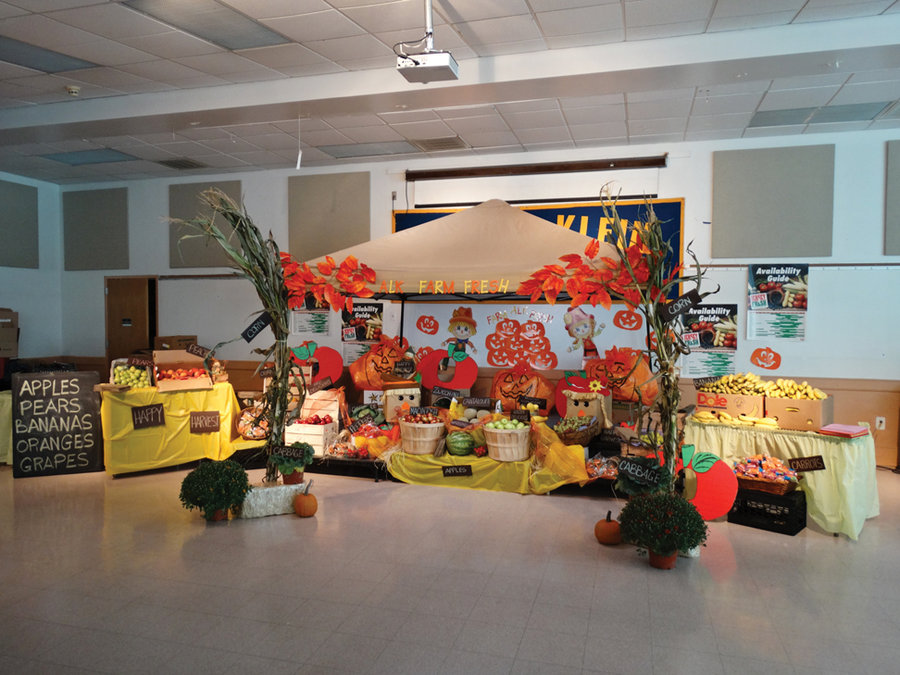Last March, kids at Guttenberg’s Anna L. Klein School were a little scared to try blood oranges in the school cafeteria.
“Some wouldn’t eat it because of what it was called,” said Barbara Feinstein, who manages the day-to-day food services at the school. “But once the teachers got them to taste it, they just loved it. We can’t wait to do that again.”
Over the course of an average day, almost 1,000 kids file through the school’s cafeteria. On Tuesday, Sept. 23, they were greeted by a farm stand loaded with fresh produce including grapes, bananas, apples, peaches, and other Jersey treats.
It was all thanks to a $55,000 grant that allows the school to bring in local produce for snacks three times a week throughout the year. Anna Klein School received the coveted grant two years ago, but last year the money went to other schools. This year the grant came back to Guttenberg.
“It’s very competitive to get this, because there’s only a certain amount of money that is available,” said Principal Piper McDermott, who is area supervisor for Maschio Food Service, Inc. “I’m in charge of 24 schools and I have four that qualify for this, and this was the only one that was granted.”
1,000 students at Anna L. Klein School are treated to fresh Jersey produce three times a week thanks to a $55,000 grant.
____________
“Originally the program was started about 10 years ago,” said McDermott. “The federal government piloted it in about four states. Now they permanently allocated money to keep the program going.”
Nutrition captains
On Monday, Wednesday, and Friday mornings, a “nutritrion captain” in each class picks up bags of produce for each student. The kids then eat the goodies as a snack either in the morning or the afternoon, depending on what time their lunch is scheduled.
“The teachers, the staff, everyone is so involved with it,” said Feinstein. “They love it; they really do. And the kids look forward to it during the day.”
Jersey fresh
“We try to get local,” said McDermott. But with no farms in Hudson County and few in Bergen County, the program must reach out to Middlesex for produce.
Feinstein coordinates with the school nurse to accommodate children with allergies, and works in conjunction with Rutgers University on the program planning.
In spring, “there’s more food available that’s different,” said McDermott. “We can do kiwis and starfruit and stuff that they’ve never seen before.”
Art Schwartz may be reached at arts@hudsonreporter.com.
